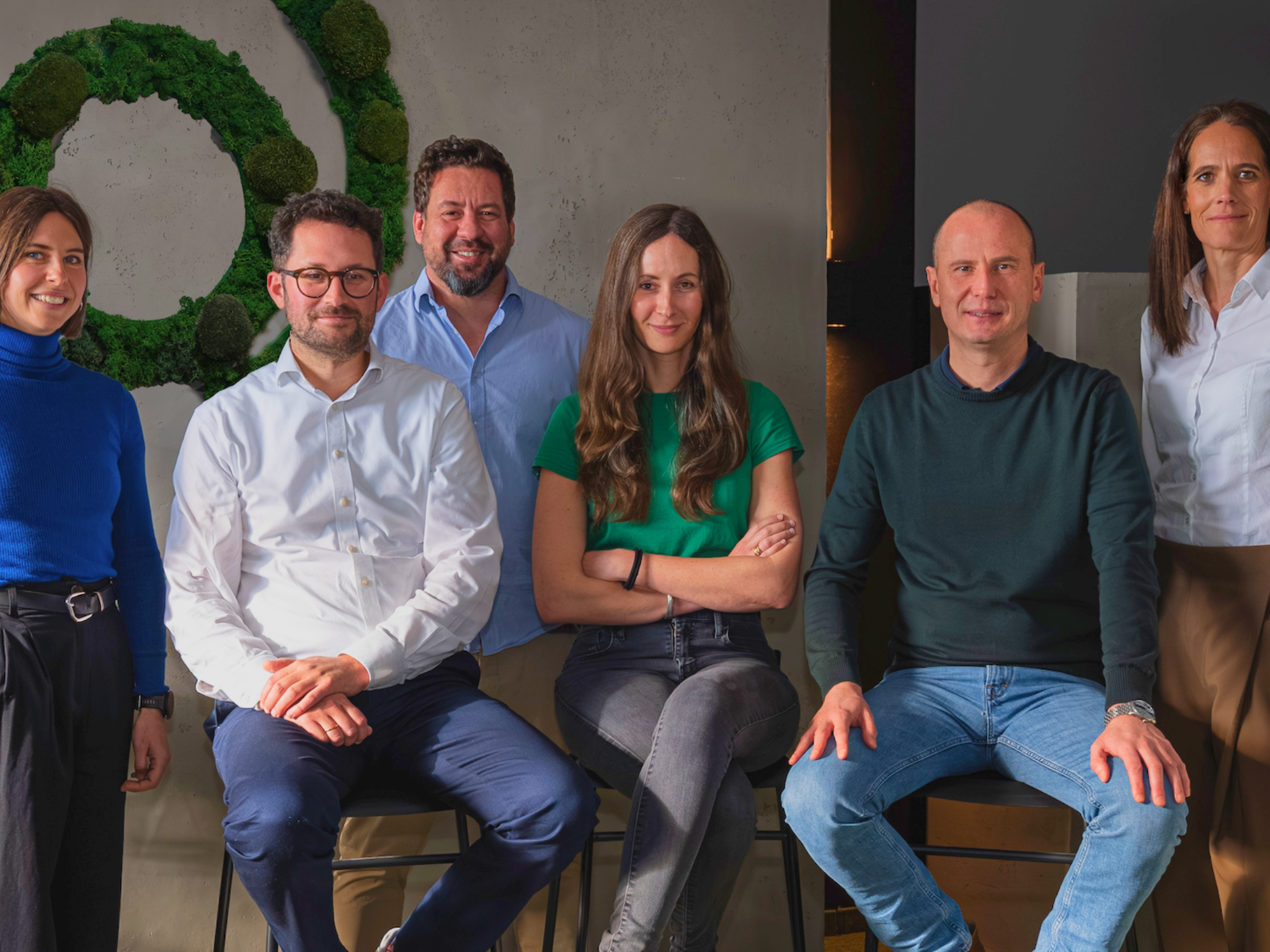Europe Is Now A Global Food Tech Leader, As Sustainable Protein Investments Soar
5 Mins Read
European future food startups saw a 25% boost in funding in 2024, making the region a global leader in the space – but economic uncertainty is keeping investors cautious this year.
While US tariffs keep business leaders and investors on their toes this year, 2024 was a bright spot for the food tech ecosystem in Europe.
Companies in this space attracted €4.1B, only a 2% decline from the €4.2B they raised in 2023. After a 57% drop from the highs of 2021 (compared to a 72% decline globally), investments are finally stabilising in the region, according to research by Paris-based food tech consultancy DigitalFoodLab for the eighth edition of its State of the European FoodTech Ecosystem report.
The firm suggests that 28% of global food tech funding flowed into startups originating from Europe in 2024, thanks in large part to the food delivery (accounting for a third of the total) and food science (30%) verticals. The latter includes alternative proteins like plant-based milk and cultivated meat, as well as climate-friendly foods like cocoa-free chocolate and beanless coffee.
Future food leads Europe’s charge
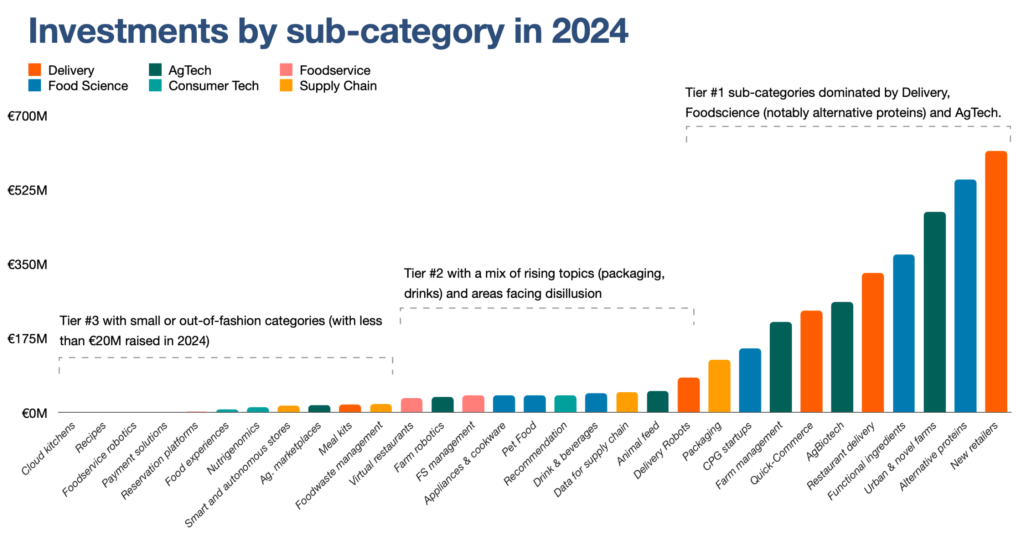
When it came to deal count, alternative proteins were the most well-funded subcategory in Europe last year. And even in terms of the capital invested, this category ranked second, behind only “new retailers”.
Globally, alternative proteins secured 27% less financing in 2024, according to separate research – though when combined with other climate-friendly innovations in chocolate, coffee and fats, this future food sector saw a 25% hike in investments last year, reaching €830M. That means they account for about a fifth of all food tech funding in the region.
“Europe was the most attractive region for alternative protein in 2024,” says Matthieu Vincent, co-founder of DigitalFoodLab, citing the firm’s unpublished data on other markets. This is despite the EU being host to a “more complicated regulatory framework” for novel foods.
Some of the leading examples include Formo’s $61M Series B round, Infinite Roots’s $58M Series B funding, Onego Bio’s raise of $55M over two rounds, Heura’s $43M Series B round, and Mosa Meat’s $42M round.
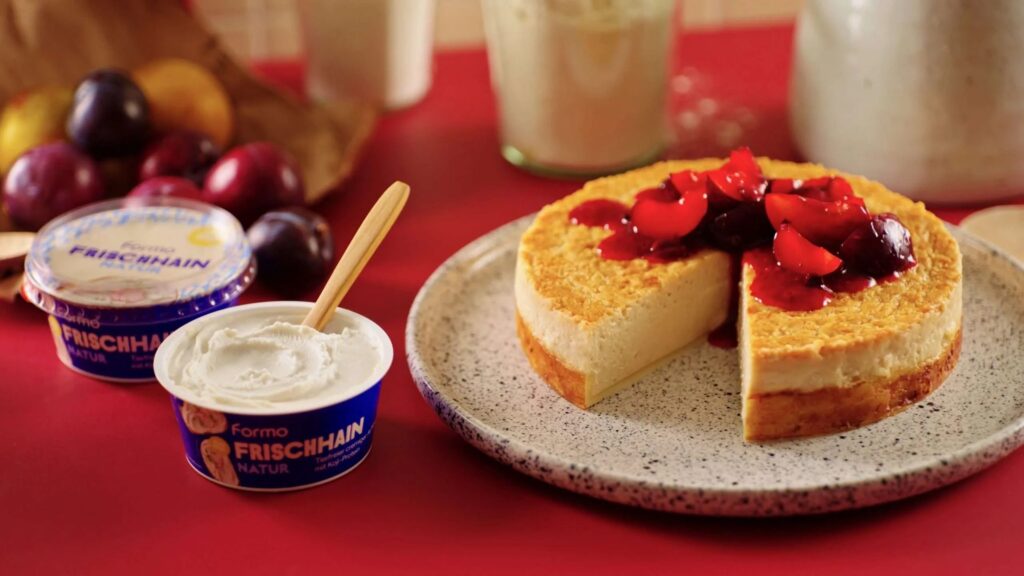
“We have observed a surge in the number of grants and research programmes funded by the EU and the UK, which firmly position themselves to compete and have a leading role in the burgeoning bioeconomy,” the report notes. In fact, European research funding for alternative proteins reached an all-time high of €290M in 2024, according to the Good Food Institute Europe.
Vincent ascribes the future food success in Europe to a “focus on specific areas that have done extremely well this year, notably alternative chocolate and coffee”. Germany’s Planet A Foods, for example, closed a $30M Series B round in December to scale its cocoa-free ChoViva chocolate.
“European startups have always skewed a bit more toward B2B, [and] hence healthy ingredients, which are also doing quite well in comparison to B2C-focused alternative proteins,” says Vincent. “It confirms the main trends of the ecosystem: more B2B, a focus on health, and on supply chain solutions, rather than on new brands.”
Tariffs and economic uncertainty are a blight for European food tech
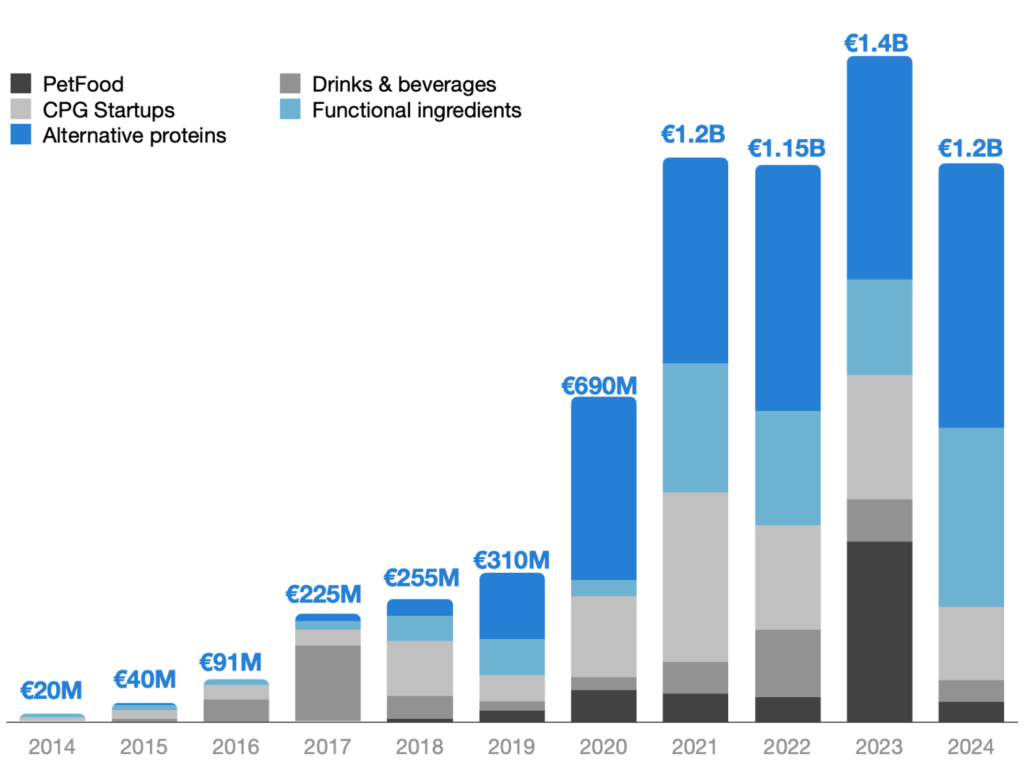
DigitalFoodLab’s report found that German startups lead investments in the food science category, which includes pet food, beverages, CPG firms, and cloud kitchens, in addition to functional ingredients and alternative proteins. They made up a fifth of the category’s total investment, reaching €250M.
This was closely followed by the UK (€240M), and then France (€130M), Switzerland, and Finland (€110M each). This mirrored the trend across the food tech ecosystem, with strong performances in Germany, the Netherlands, and the Nordic countries.
The main reason why these countries have attracted investment is that they already have “large consumer markets interested in these products”, according to Vincent.
“Lagging behind is all the rest of Europe, notably the southern part, where investment in alternative proteins is much more modest,” he points out.
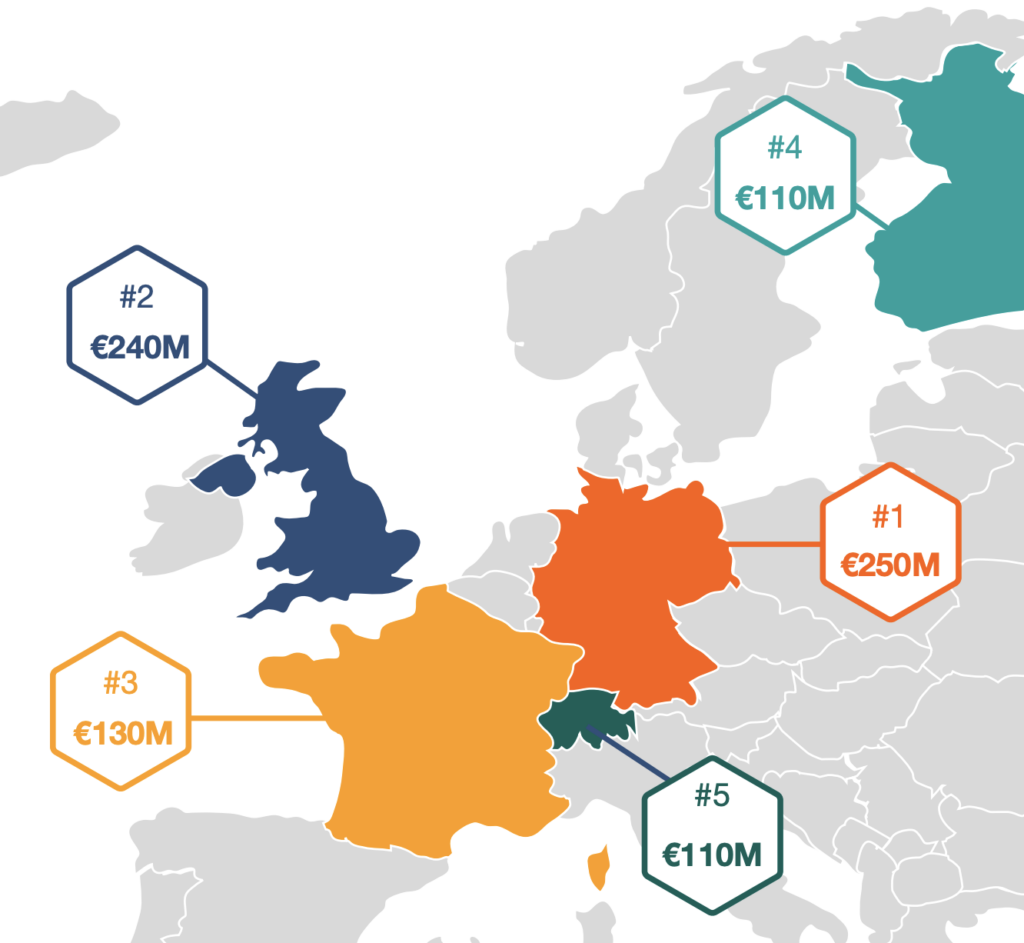
The global economy faces a huge threat with the arrival of US President Donald Trump’s tariffs, which have plunged every industry into chaos. While things are changing on an almost daily basis, the EU was slapped with a 20% tariff before Trump’s 90-day pause on most such levies a day later.
However, talks between the bloc and the US are not going smoothly, raising fears of higher tariff rates for EU member states. Food tech investors are already advising founders to exercise caution, and for Vincent’s money, Europe’s progress from last year may be undone.
“I would have been much more certain about the direction a month or two ago. Now, things look very uncertain with the current economic situation, which is also impacting investments in food tech,” he says. “Uncertainties combined with a declined appetite for sustainability won’t be good for the European ecosystem.”
He adds: “At the start of the year, I would have predicted a stable year with neither a bounceback nor a decline. Now, as far as I can see, the year will be tough, with probably a decline in funding, at least for the first half of the year, while investors wait to see where things are going.”

